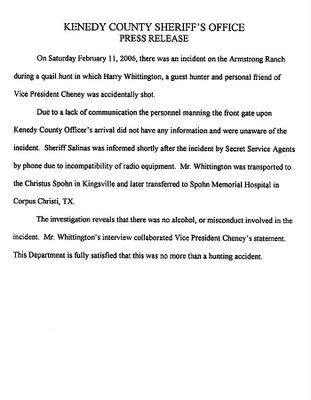
Fallout for the New Times-SLO over their "Meth Made Easy" feature from last week was almost immediate. Central Coast news stations ran reaction pieces on the very evening the paper published. All featured negative reactions.
The negative reaction has continued and grown in the week since in both numbers and strength. More importantly for the New Times (and also for their sister pub the Santa Maria Sun though to a lesser degree) it has extended itself to include their advertising roster.
The overwhelming reaction to the story and the resulting fallout has prompted Editor Jim Mullin to issue an apology in this week's edition:
First an apology, then an explanation.
We deeply regret having provoked the community outrage that has been so forcefully expressed in response to last week's cover story, "Meth Made Easy." From throughout SLO County we received hundreds of angry letters and phone calls. Quite a number of you went to the trouble of visiting our office to voice your feelings in person.
Many faithful readers vowed never to pick up New Times again. Businesses that for years served as distribution points told us they no longer want the paper in their stores. Other businesses withdrew advertising. Some people vowed to launch a boycott of those advertisers who remain. Certain individuals took it upon themselves to confiscate copies of the paper -- many thousands of copies.
The message was as clear as it was consistent: The publication of "Meth Made Easy" strained to the breaking point a trust that had steadily developed over two decades. Trust is a precious and delicate commodity, and it is essential to the relationship between a community and any newspaper that would hope to serve it. Needless to say, we would never intentionally place that trust in jeopardy, just as we would never intentionally seek to harm the very community to which we belong.
The negative reaction to "Meth Made Easy" carried another, implicit, message: Thousands of people in San Luis Obispo County feel they have a stake in New Times, a personal investment strong enough to trigger immediate action. Simply dismissing a perceived transgression isn't enough; such an affront demands direct communication with those of us responsible for producing the paper each week. It's a sad irony that this loyalty to New Times would manifest itself under these circumstances. (Unfortunately the overwhelming volume of calls and letters prevents us from responding personally to each one.)
As editor I take full responsibility for publication of "Meth Made Easy," but I know I speak for the entire New Times staff in offering a sincere apology for the sense of betrayal felt by so many readers.
The heart of any apology is recognition of a wrong combined with an expression of regret over that wrong. Too often in modern America, an apology is nothing more than a regret over someone else's reaction to what you've done, not the expression of regret about that act.
Mr. Mullin's apology, unfortunately, takes that tack. The regret is over community anger, not the act that incited it. The apology is for the sense of betrayal felt by readers, not the act that betrayed readers' trust.
In evangelical Christian circles we'd say that Mr. Mullin is sorry, not for what he did, but for getting caught. I'd like to think otherwise but the text leads me to only that conclusion. From his apology, Mullin moves to an explanation of the paper's reasoning:
The impetus for exploring the methamphetamine phenomenon was the January 5 bust of a meth lab in Paso Robles. We noted the incident in a brief story the following week, but a larger question lingered: Despite the well-publicized dangers of meth, law enforcement agencies continually arrest people for making it and using it. In fact, those arrests have become so common they barely register on the radar of the Central Coast's media. But what did we really know about those 'laboratories'? Why were they so dangerous? What was actually going on inside?
...
We were amazed at several things: the ease of access to instructions for manufacturing meth, the relatively low cost involved, and the noxiousness of the ingredients, most of which can be found at local stores. All kinds of people may be trying meth these days, and as Alice noted in her story, "everyone, users included, knows that regular meth use can do horrible things to the mind and body." But are those users (and potential users) aware of exactly what chemicals they're ingesting? Do they have any idea how those poisonous substances are manipulated to produce the powder they're snorting or smoking or injecting?
"Meth Made Easy" answered those questions -- accurately, truthfully, and without the moralizing tone inevitably associated with any discussion of meth, a tone pretty much guaranteed to turn off readers, young ones in particular. (I believe information like this is conveyed most effectively when you dispense with the sermon and speak honestly, which in this case meant two things: including the recipe in all its detail, and pointing out the obvious -- this toxic drug remains popular because it makes people feel good, at least for a while. Ignoring that would deny reality and destroy credibility.) The absence of a scolding tone, I suspect, is what led many people to misread the story and misunderstand its significance. I also suspect our use of sarcasm, designed to hold reader interest, alienated some who believed the subject was too serious to be treated flippantly.
With our Internet recipe, gleaned from a Website devoted to all things illegal, we had come into possession of "dangerous knowledge," and though it is widely available and easily accessible, in the view of many it must not be disseminated - not under any circumstances and especially not by the press. To do so would be tantamount to becoming an accessory to a crime. It would signal tacit endorsement, even encouragement, of drug use.
Just in case there is doubt in anyone's mind, I can state unequivocally that New Times does not condone or endorse the use of meth or any other illicit drug, a fact that could have been articulated more emphatically in "Meth Made Easy."
Mullin, inadvertently it would seem, articulates precisely why people have reacted so forcefully in that second-to-last paragraph: ...though it is widely available and easily accessible, in the view of many it must not be disseminated - not under any circumstances and especially not by the press. To do so would be tantamount to becoming an accessory to a crime. It would signal tacit endorsement, even encouragement, of drug use." His acknowledgement of this makes the decision to publish even more curious.
It appears that he believes that because the information is there, that publication of it in all it's detail is justified: In this digital age, cyberspace has made it possible for anyone with Internet access to figuratively travel anywhere, instantly. The Internet thus has put the power of knowledge in the hands of the masses, including virtually every young person in San Luis Obispo County. Unlike totalitarian societies, where the Internet is rightly seen as a threat to dictatorial rule and is suppressed (China and Cuba being two examples), our society has embraced it as a powerful new resource. Market forces, individual initiative, and governmental policy have combined in a way that ensures the Internet, and all it has to offer, will be an integral part of our future. Among the things it offers to everyone, including local kids, is unrestricted access to a new universe of dangerous knowledge -- things like recipes for making methamphetamine.
We published "Meth Made Easy" in the context of that new universe. And while incorporating the full recipe was a controversial decision, it was consistent with the realities of cyberspace.
Mullin makes his strongest point in closing, writing that: The outcry, the condemnations, the threats that followed have left us humbled and distressed. Yet we still have hope that this civic fury can produce something positive: a candid dialogue that leads to greater understanding-- made possible by the power of knowledge.
A 'candid dialogue' would certainly benefit the cities and residents of San Luis Obispo county, but sadly the presentation they saw from the Times was exactly what Mullin described: a tacit endorsement of the activity, as it highlighted the relative ease with which ingredients are acquired and the potentially huge ROI for the manufacturer. Absent any sort of statements telling them otherwise, what are readers to think?
















